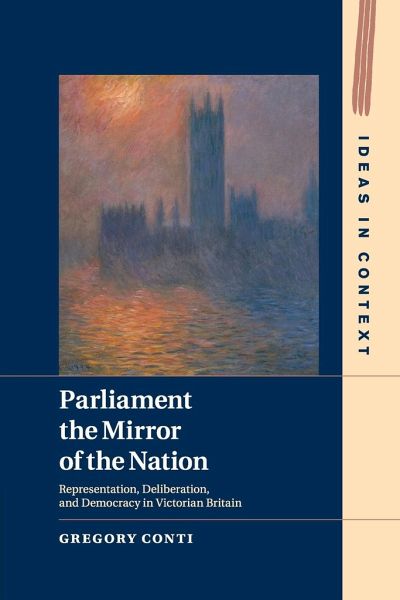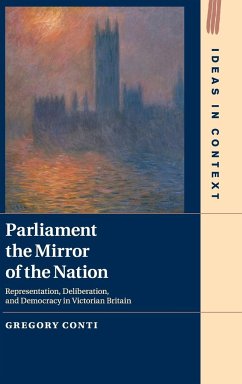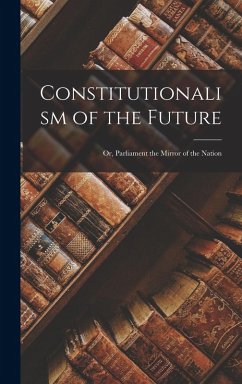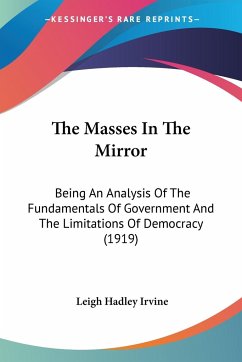
Parliament the Mirror of the Nation
Versandkostenfrei!
Versandfertig in 1-2 Wochen
47,99 €
inkl. MwSt.
Weitere Ausgaben:

PAYBACK Punkte
24 °P sammeln!
How did the Victorian era - the epoch when the modern democratic state was made - understand democracy, parliamentary representation, and diversity? Here, Gregory Conti examines how the Victorians conceived the representative and deliberative functions of the House of Commons and what it meant for parliament to be the 'mirror of the nation'.














